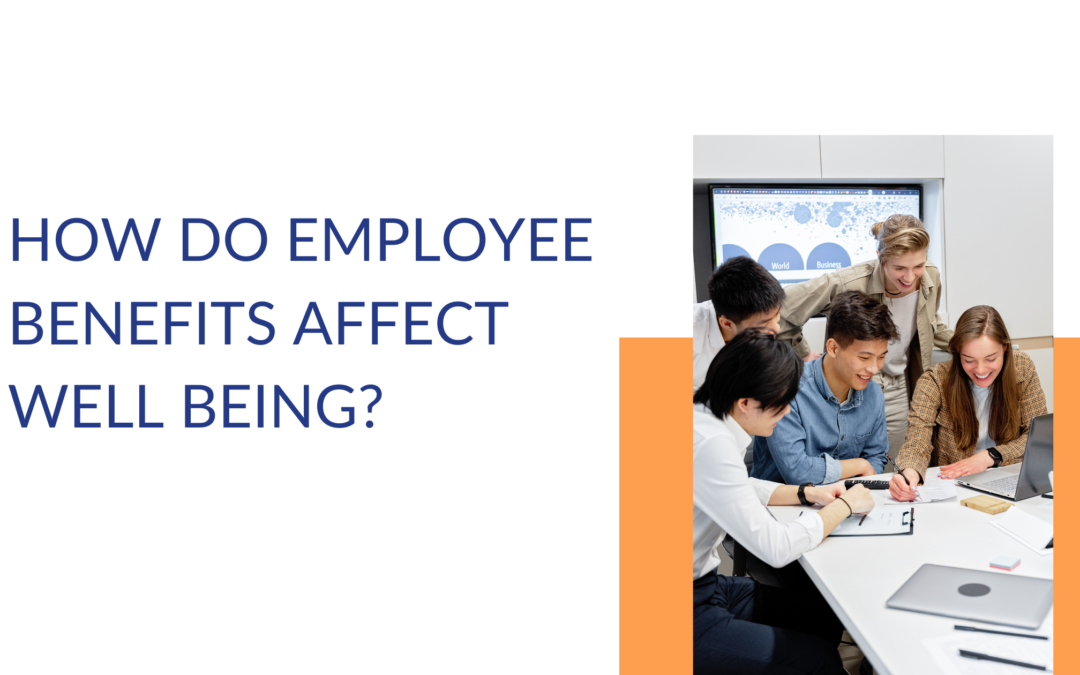Once upon a time, job seekers in the U.S. valued one thing when it came to finding the perfect job; money. In today’s economy compensation is still a valuable factor for job hunters all over the nation, but what is proving to be more valuable than anything in today’s market is an attractive “well-being benefits package.” Research conducted by Paychex and Future Workplace showed 603 full-time workers during November, 2021 found well-being benefits to be the most sought after criteria for job seekers. So, what are “well-being benefits” and why are they important to have when offering a new position? Learn more below.
What are Well-Being Benefits?
These are specific benefits employers can offer their employees in order to improve their overall well-being and create a healthier work/life balance. Employees want to feel that their well-being is prioritized and that they are seen and valued in their organization.
What are Some Well-Being Benefits?
There are five components that make up a well-being benefits package:
- Financial well-being
- Mental/emotional well-being
- Physical well-being
- Social well-being
- Career well-being
What is Financial Well-Being?
Financial well-being means that all employees are paid a fair living wage for their education, work experience, skillset and seniority. This allows employees to meet current and ongoing financial obligations and feel secure about their financial future.
What is Mental and Emotional Well-Being?
Emotional well-being means that employees have the tools to cope with life’s stresses and adapt to change during difficult times. Both are key skills all employers should want their employees to have. Some benefits that contribute to your employee’s mental and emotional well-being are by offering work from home days, mental health days, on-site counseling, paid counseling, “quiet rooms” on campus, or team building days.
What is Physical Well-Being?
Physical well-being is practicing self-care for the needs of the body. Some benefits that contribute to your employee’s physical well-being could be unlimited sick days (to prevent workers from coming into work sick), on-site vaccinations and well-exams, an on-site gym or yoga classes, reimbursement for gym memberships, free lunches, snacks, or an onsite cafeteria so employees have access to food and water all throughout the work day.
What is Social Well-Being?
Social well-being is building and maintaining healthy relationships and having authentic interactions. Some benefits that contribute to your employee’s social well-being could be team building days, open door policies between management and staff, group outings, lunches, dinners, and happy hours, or even reimbursement for couples or family counseling as personal relationships can also greatly affect an employee’s social well-being.
What is Career Well-Being?
Career well-being is the ability to achieve a healthy work/life balance that aligns with an employee’s goals, values, and lifestyle. Some benefits that contribute to your employee’s career well-being could be work from home positions, hybrid positions, 4-day work weeks, career advancement, raises, and continuing education or training.
Supporting your employee’s well-being and giving them the opportunity to see that you support them will attract the best candidates for open roles. WageScape is a tool that can be used to an employer’s advantage to stay up-to-date with the competition and to know what well-being benefits are valued most in the industry. The WageScape data platform is the largest and fastest source of real-time labor market data. WageScape clients are using our high-definition data platform to take their workforce analytics efforts to the next level. Learn more about how WageScape can help your business beef up their well-being benefits now.


Recent Comments